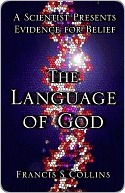More on this book
Community
Kindle Notes & Highlights
Read between
September 20 - September 22, 2024
For the committed materialist, no allowance can be permitted for the possibility of miracles in the first place (his “prior” will be zero), and therefore even an extremely unusual cure of cancer will be discounted as evidence of the miraculous, and will instead be chalked up to the fact that rare events will occasionally occur within the natural world. The believer in the existence of God, however, may after examining the evidence conclude that no such cure should have occurred by any known natural processes, and having once admitted that the prior probability of a miracle, while quite small,
...more
If this probability morphs into certainty, that could kill the motivation to study the event, to replicate and apply it, which it should be.
To be credible, miracles must convey a deeper understanding than could have been obtained without them.”15
Deeper moral understanding and maybe even physical. If God cures an individual whom doctors had pronounced terminal, this will lead scientists to reevaluate what is possible, to study the event and to save other lives.
Kant, wrote: “Two things fill me with constantly increasing admiration and awe, the longer and more earnestly I reflect on them: the starry heavens without and the Moral Law within.”
the Big Bang itself seems to point strongly toward a Creator, since otherwise the question of what came before is left hanging in the air.
But this is true both in a universe and a multiverse model. In both cases, we face the question, why is there something instead of nothing?
A universe model is merely a more efficient way of making our universe. It is not the only model that asks, why is there something instead of nothing?
And the efficiency question is complex. The multiverse, if inefficient in creating our universe, may have created other valuable things that only God, and those other things, know of.
They argue that perceived gaps in the fossil record demonstrate the fallacy of Darwin’s theory.
This where the God of the Gaps got aggressive, going after the very scientific model in which believers had housed him.
The God tucked away in the gaps in the attic -- or rather this God's believers -- condemned the entire house as unstable and fit for the wrecking ball.
Young Earth Creationism has reached a point of intellectual bankruptcy, both in its science and in its theology. Its persistence is thus one of the great puzzles and great tragedies of our time.
It is also important to point out that the design of the eye does not appear on close inspection to be completely ideal. The rods and cones that sense light are the bottom layer of the retina, and light has to pass through the nerves and blood vessels to reach them. Similar imperfections of the human spine (not optimally designed for vertical support), wisdom teeth, and the curious persistence of the human appendix also seem to many anatomists to defy the existence of truly intelligent planning of the human form.
Theism knows this word is painful; it should not be expecting perfection anywhere short of God/heaven. In fact to see perfection anywhere else is a form of idol worship.
Behe cites Darwin’s famous sentence to support the arguments of irreducible complexity: “If it could be demonstrated that any complex organ existed, which could not possibly have been formed by numerous, successive, slight modifications, my theory would absolutely break down.”5 In the instance of the flagellum, and in virtually all other instances proposed for irreducible complexity, Darwin’s criteria have not been met, and an honest evaluation of current knowledge leads to the same conclusion that follows in Darwin’s next sentence: “But I can find out no such case.”
ID also fails in a way that should be more of a concern to the believer than to the hard-nosed scientist. ID is a “God of the gaps” theory, inserting a supposition of the need for supernatural intervention in places that its proponents claim science cannot explain.
We love conflict and discord, and the harsher the better. In academia, the serious music and art produced by members of the faculty seem to celebrate being hard to listen to and hard to look at.
Yes but this can be turned to good if it widens our listening, seeing, and sympathy. "Hard to listen to and hard to look at" is the experience of outcasts.
If you rewound the clock several hundred million years, and then allowed evolution to proceed forward again, you might end up with a very different outcome.
This adds perspective to the theological debates about what extraterrestrial life in the universe would mean about us. Our current human form, it turns out, is not the essential part, the part that's created in the image of God. Nor would any extraterrestrial's external form be that.
Here is Lewis’s version of the events in question: For long centuries, God perfected the animal form which was to become the vehicle of humanity and the image of Himself.
most of the time it happens in simple acts of kindness of one person to another.
In years of dreaming of going to Africa, I had felt the gentle stirrings of a desire to do something truly unselfish for others—that calling to serve with no expectation of personal benefit that is common to all human cultures. But I had let other, less noble dreams get in the way—the expectation of receiving admiration from the Eku villagers, the anticipation of applause from my medical colleagues at home. Those grand schemes were clearly not happening for me in the gritty reality of impoverished Eku. But the simple act of trying to help just one person, in a desperate situation where my
...more
The universal presence of mutations in DNA, the price we pay for evolution, means that no one can claim bodily perfection any more than spiritual perfection.


